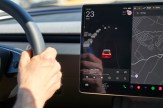The electric car revolution with new models arrives at Northeastern
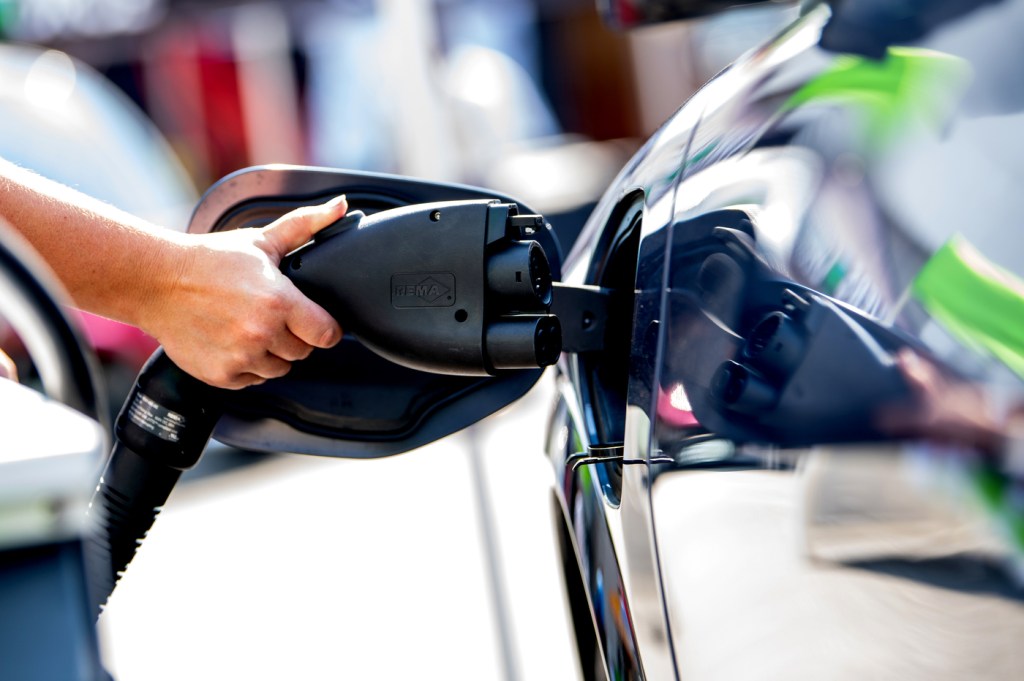
On most summer days, the parking lot at Matthews Arena in Boston would largely be devoid of cars. But on Thursday, the lot had a crowd of people checking out a variety of electric models made by some of the world’s top automakers, including Tesla, Ford, and Audi—the German luxury brand’s CEO sees electric cars as being as profitable as gas models within a few years.
The occasion was a public gathering that provided a preview of the transportation future, including Northeastern’s own commitment to expand its electric vehicle fleet.
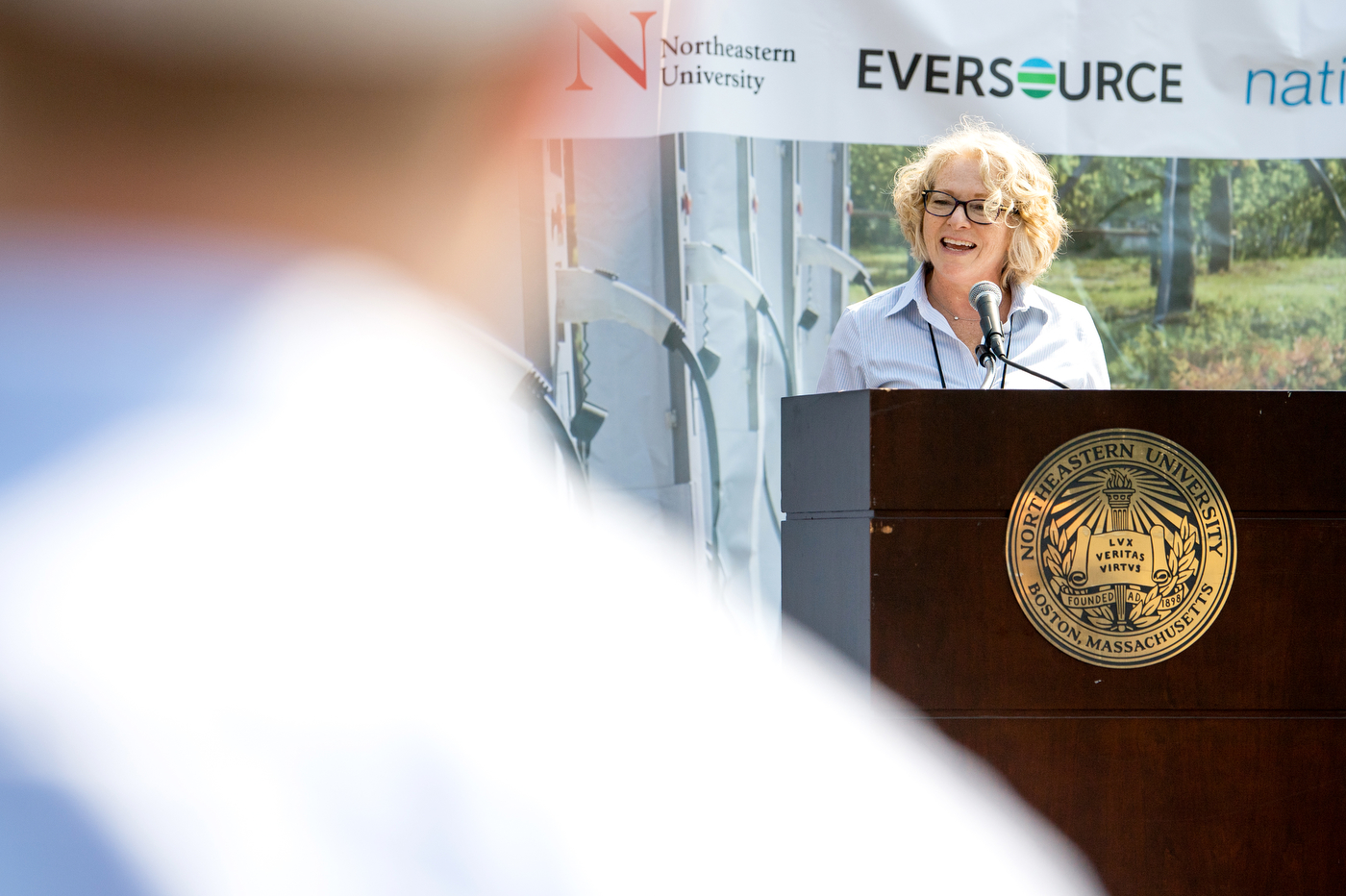
‘We’re moving away from fossil fuel vehicles to a fleet that is all-electric,’ says Maria Cimilluca, vice president of facilities management. Photo by Matthew Modoono/Northeastern University
A 2022 baby blue Chevy Bolt was on display along with a slate gray Ford Mustang Mach E4X. Nearby was a red and white, electric golf cart emblazoned with the Northeastern logo that seats four people. The zero-emissions cart is charged via a 3-prong port in the front of the exterior. A number of battery-powered e-bikes were also on hand. Attendees were encouraged to take some of them out for a spin.
Northeastern offered to host the event because “we have been active in connecting with the people who are active around sustainability in the city of Boston,” said Jacob Glickel, a senior planner in Northeastern’s Office of Sustainability, part of the Facilities Department.
The university is working to mitigate its impact on the environment from fossil fuels through a number of measures, such as the planned electrification of its fleet of almost 140 gas-powered vehicles, including pickup trucks and cargo vans, said Maria Cimilluca, Northeastern’s vice president of facilities management. It’s part of Northeastern’s Climate Justice Action Plan, a pledge to further environmental equity on campus.
The fleet changeover could result in a sharp reduction of carbon in the air since the typical passenger vehicle emits about 4.6 metric tons of carbon dioxide per year, according to the U.S. Environmental Protection Agency.
Northeastern’s shift to all-electric may include a mix of light and heavy duty trucks.
“In Facilities we are hauling a lot of materials and we have snow removal and groundskeeping,” said Cimilluca. “We do as much as we can with small vehicles, but we do need some vehicles that are larger.”
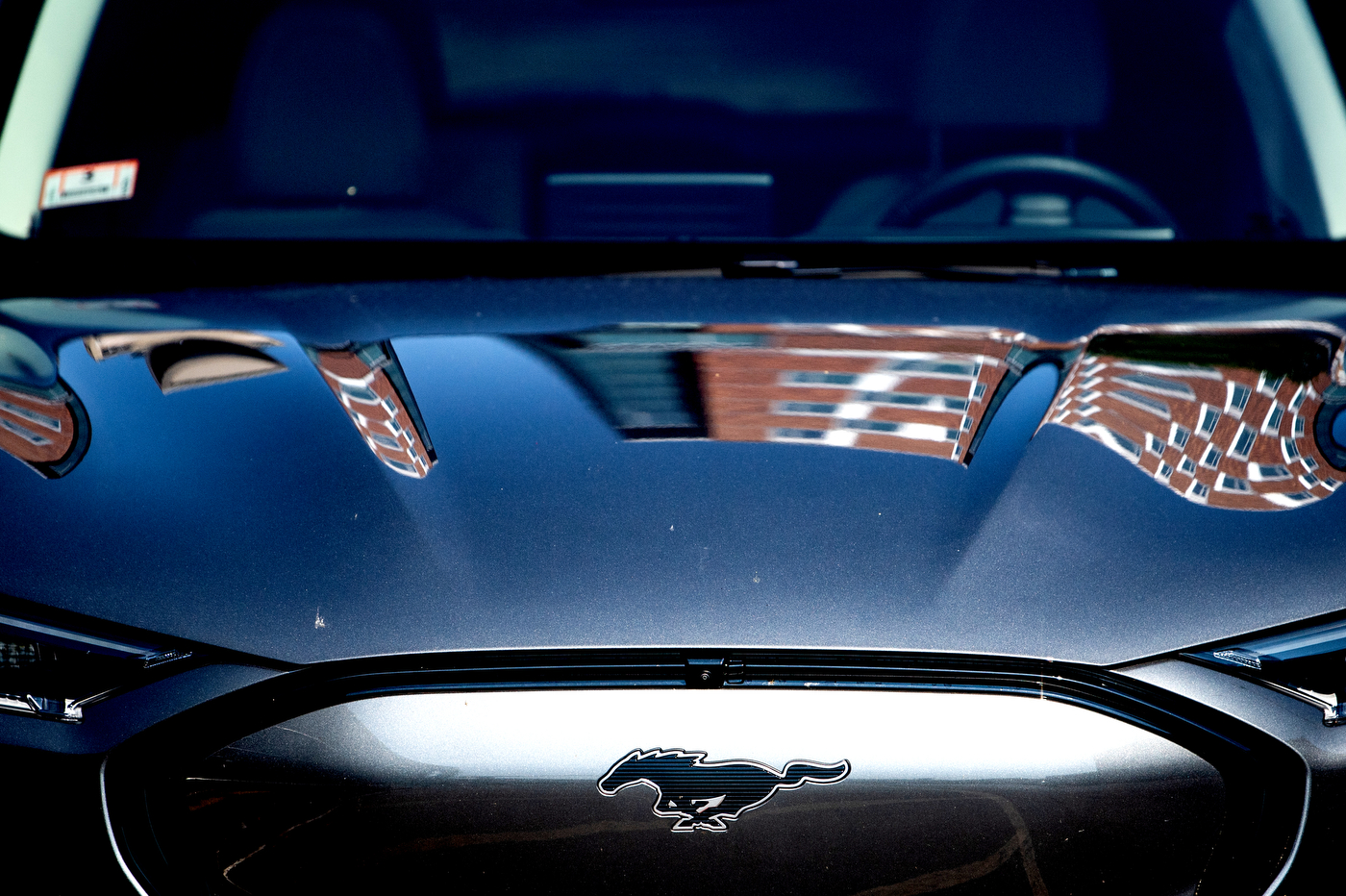
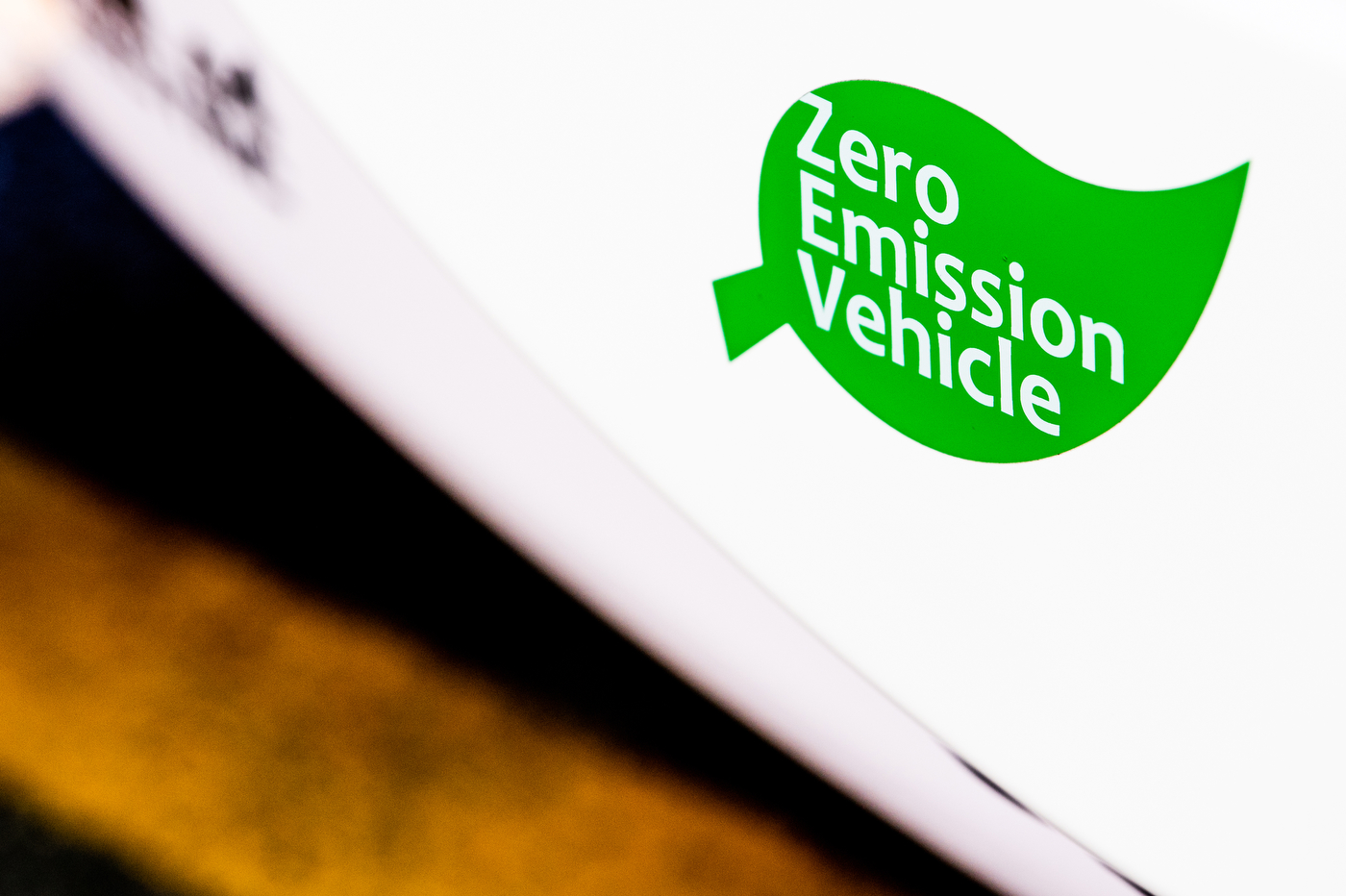
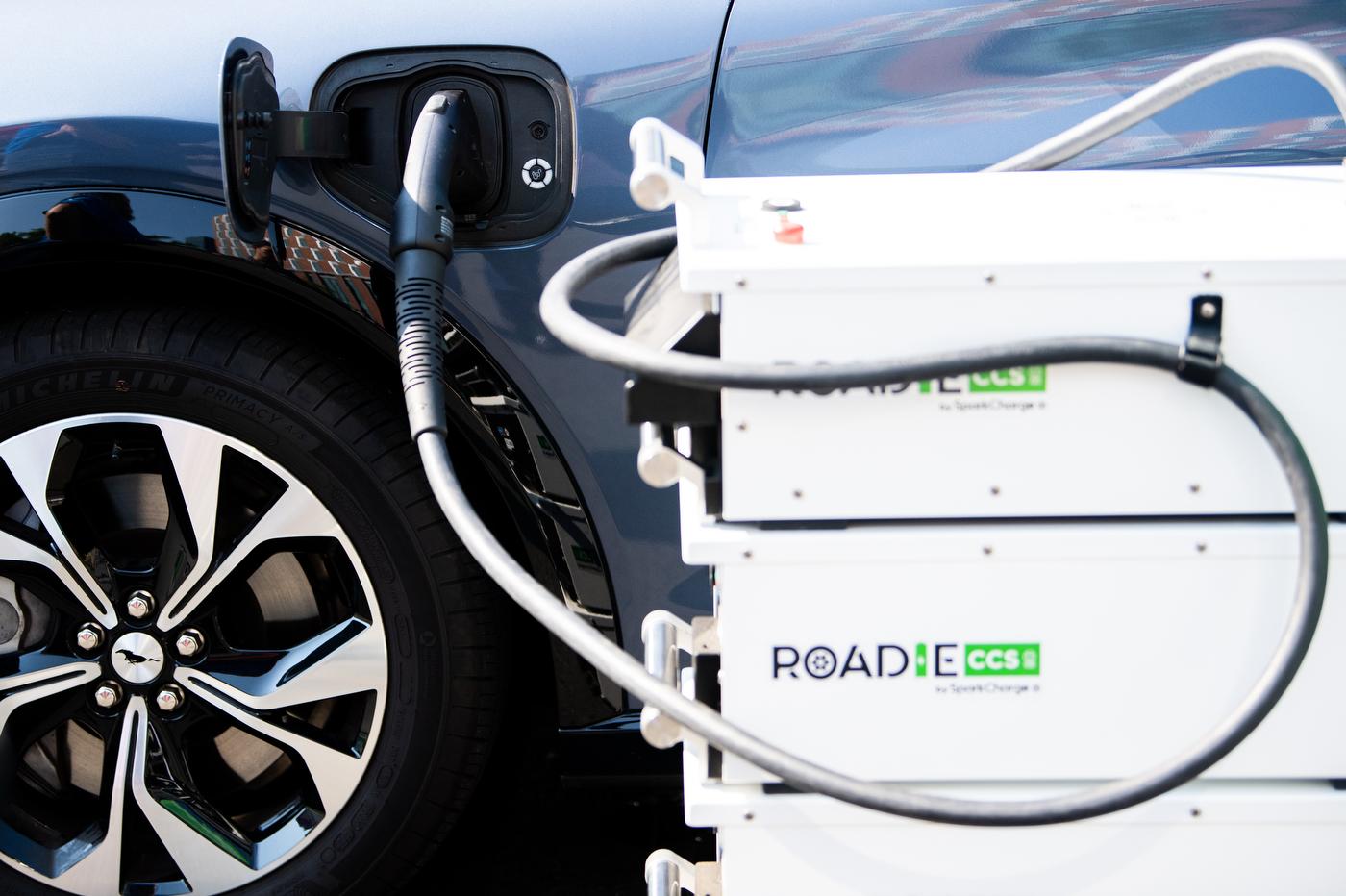
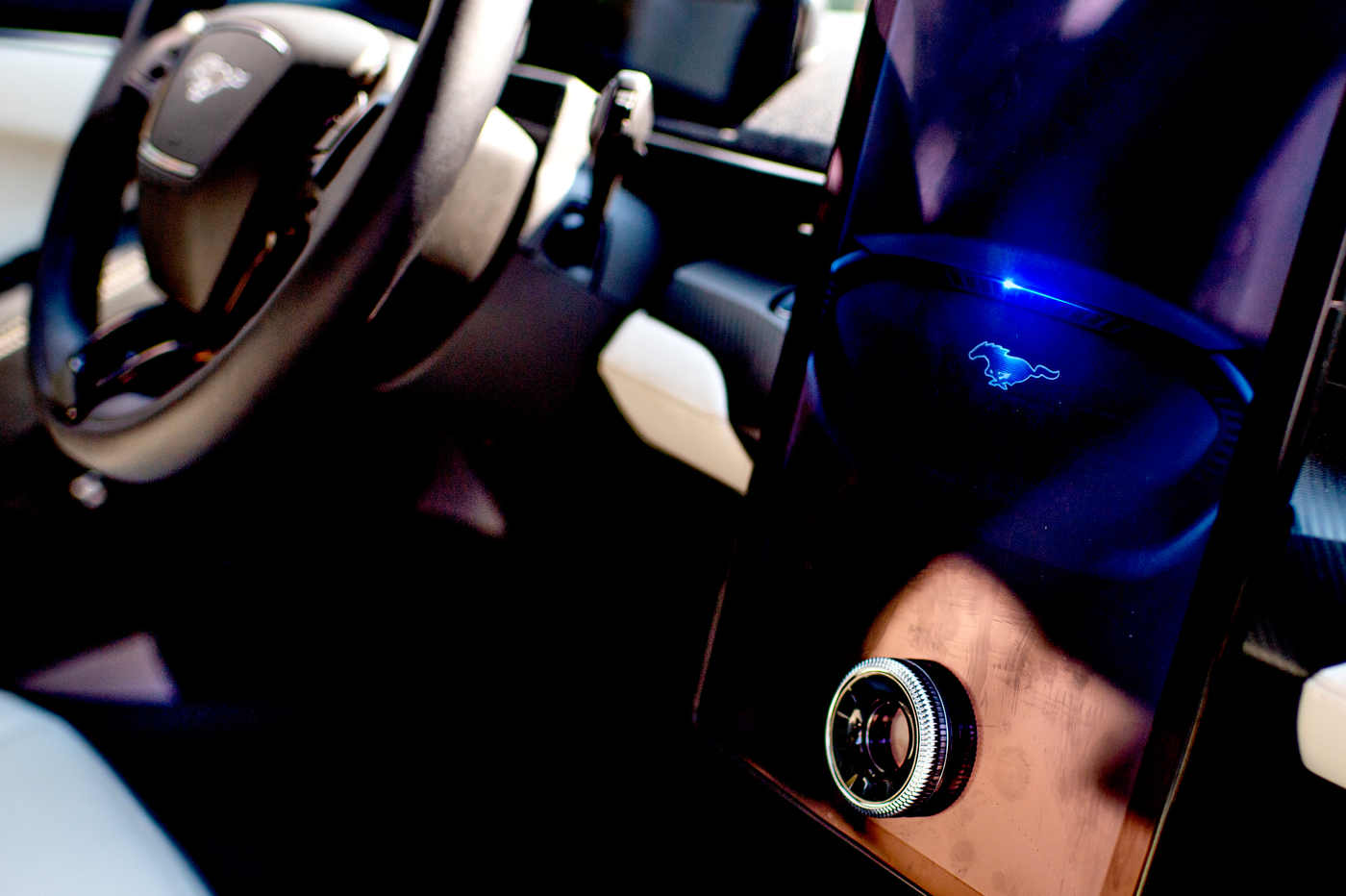
Northeastern tracks its carbon emissions and is committed to helping Boston’s goal of being carbon neutral by 2050. Switching out the university’s facilities vehicles will take place over five years because “we have to have the infrastructure in place on campus to make sure that we have proper charging stations for this size of a fleet,” Cimilluca said.
The university plans to add 20 stations to its parking garages by the end of the year—10 in Renaissance Park and 10 in Columbus. They will be available to students, visitors, and anyone else who parks on campus.
The 10 charging ports are in addition to the ones being envisioned for facilities to use directly, which, considering the size of its fleet, could number well over 100. “As batteries get better, we may find that we may not need that many,” said Cimilluca.
There are also plans to electrify the university’s loading docks for trucks making deliveries.
Northeastern’s moves are part of a broader national shift that recognizes the growing presence of electric vehicles. Sales increased by more than 250 percent year-over-year in the second quarter of 2021, according to research firm Cox Automotive.
And, U.S. senators are currently negotiating a $1 trillion bipartisan infrastructure bill that would spend billions to build a national network of 500,000 charging stations, according to a White House fact sheet. The United States had about 100,000 of them as of March, it added.
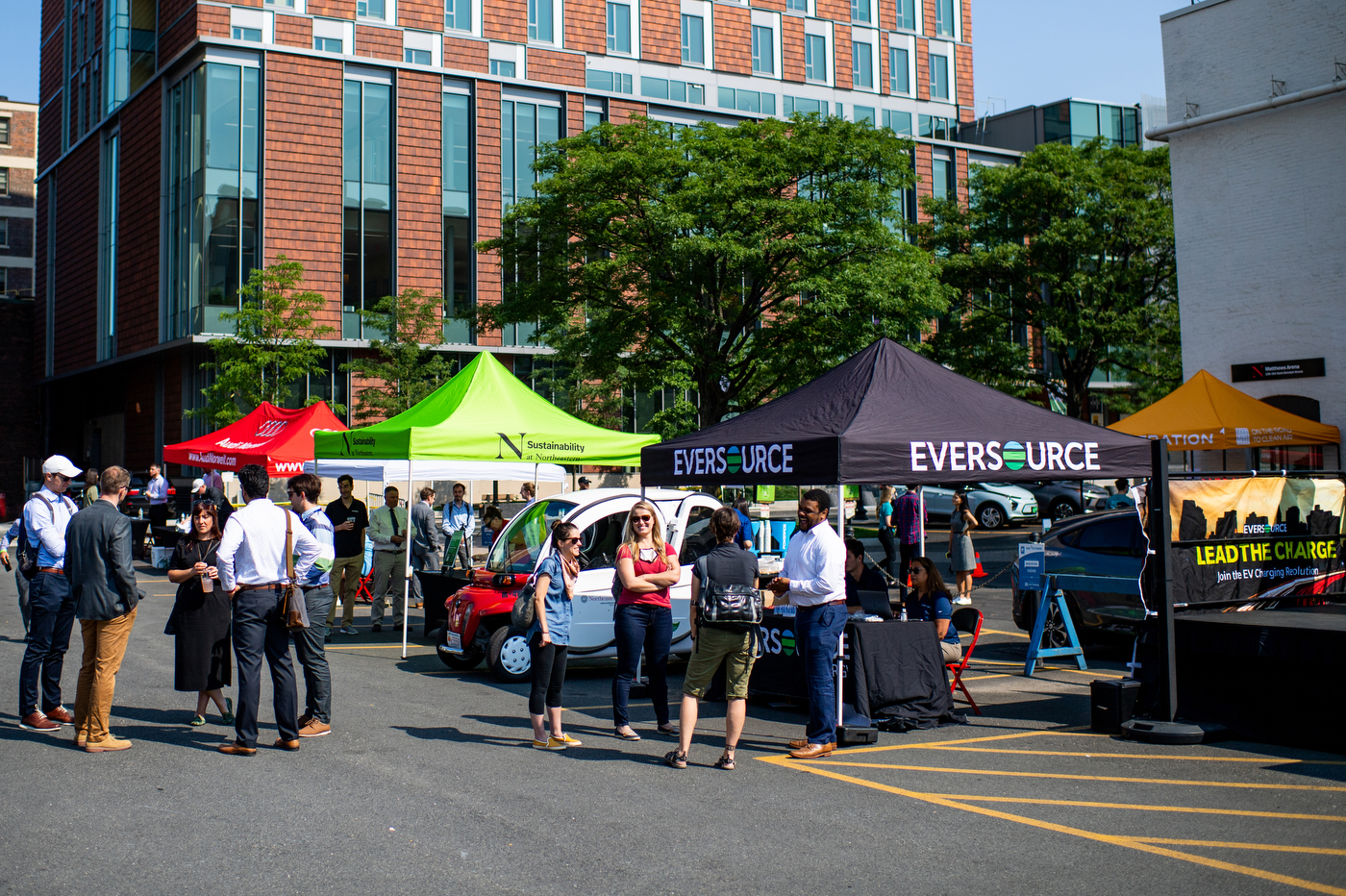
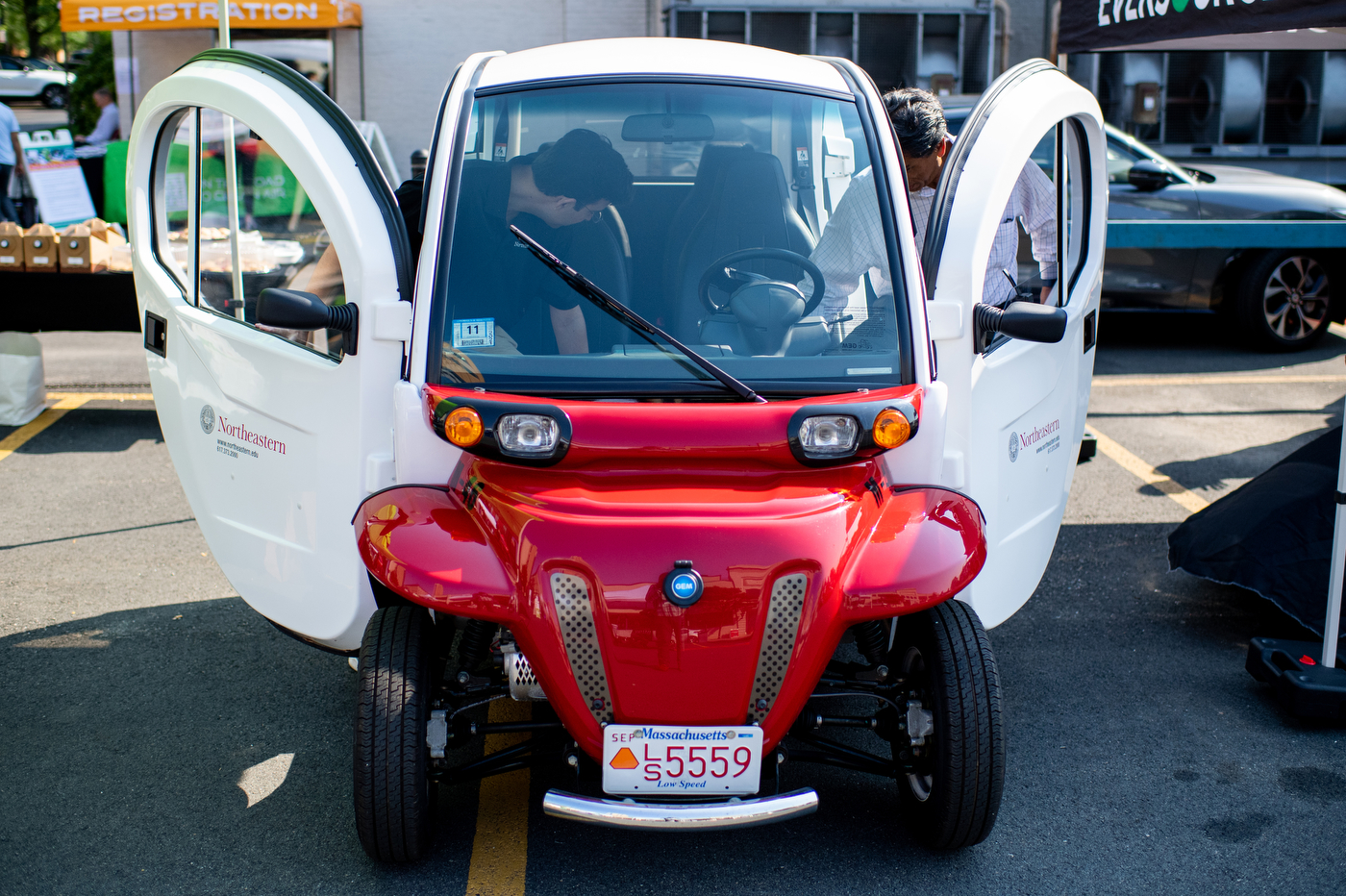
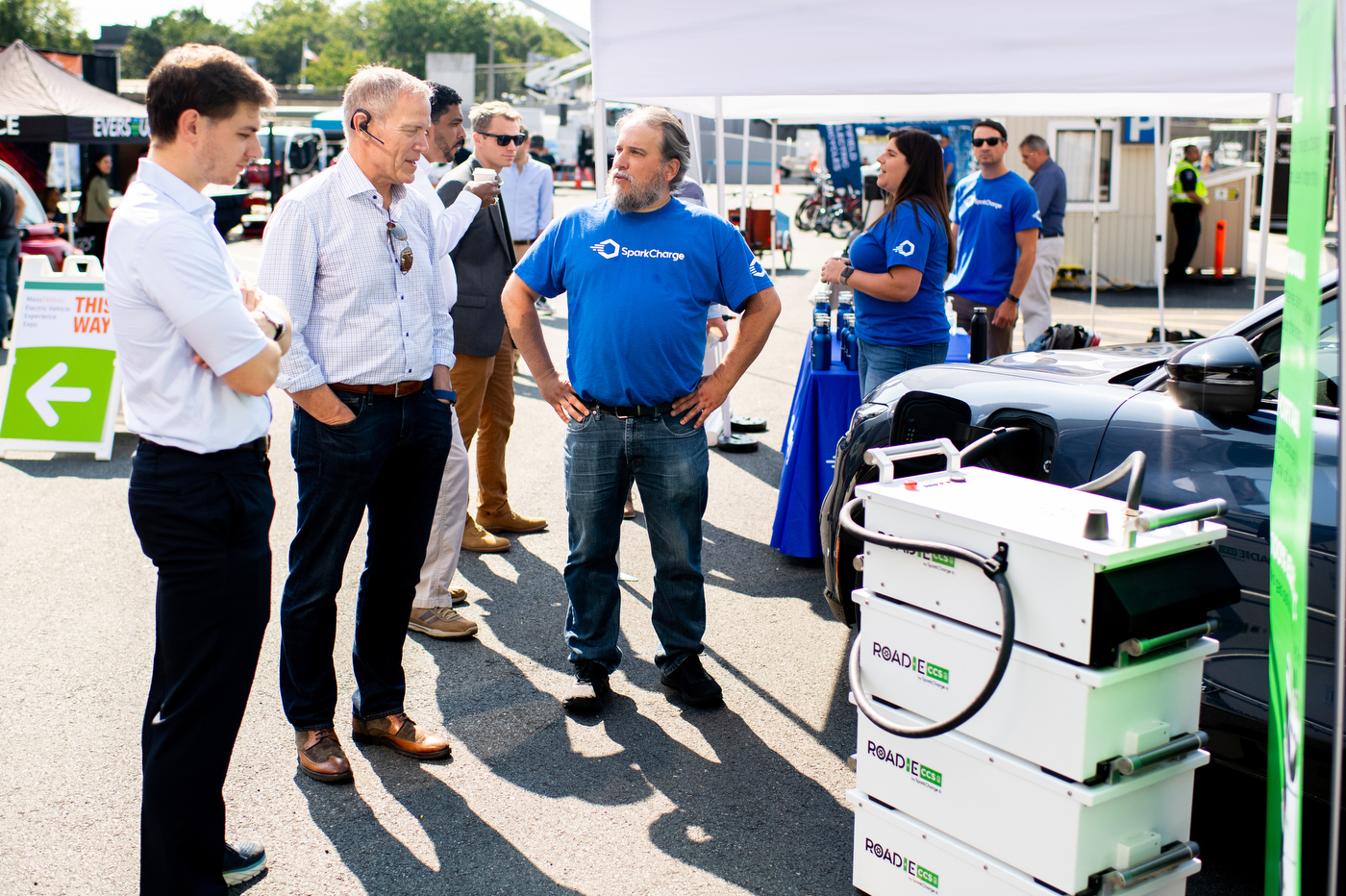
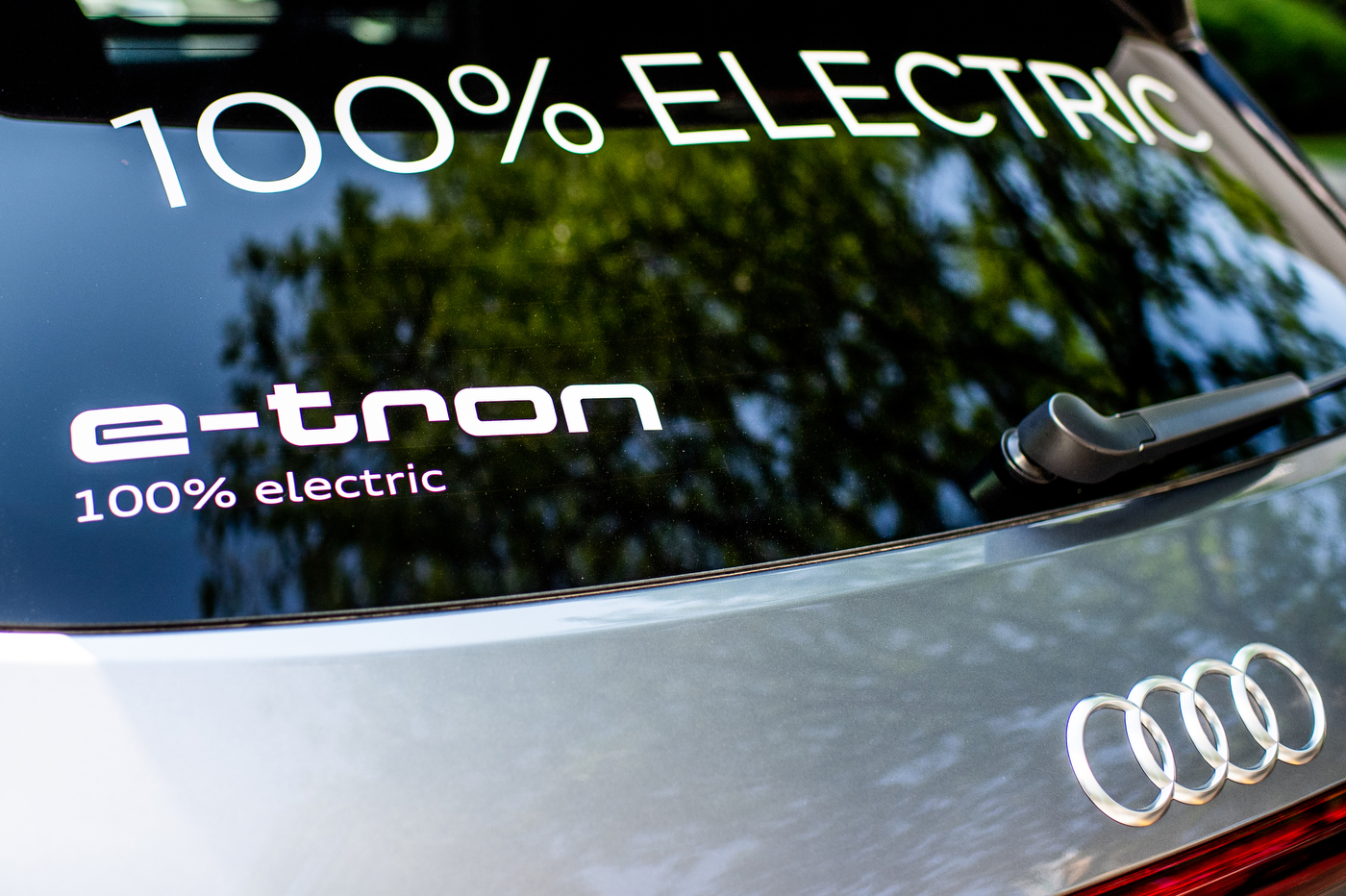
Buildings are another large consumer of fossil fuels, Northeastern’s Cimilluca said, and the university is making headway toward its environmental goals via several projects. More than 28,000 fluorescent light bulbs and fixtures have been swapped out for lower-cost, longer-lasting, energy efficient Light-Emitting Diode (LED) models.
The new fixtures will have occupancy sensing to cut off lights when the room is not in use. Other energy-saving features include daylight sensing and wireless connectivity so fixtures in a large conference room or hallway will operate in tandem. For example, when the buildings clear out at nights and on weekends, the fixtures dim down to 20 percent of their normal output.
The new bulbs and fixtures are expected to shave 3 percent off the university’s annual electricity usage.
Upgrading Northeastern’s heating and cooling systems is also being considered down the road. They have been running at a higher rate than usual to circulate air in the buildings because of the pandemic, Cimilluca added.
“We’re metering every single building,” she said of the university’s focus on its structures. “We have put in place a way to get data so that we can really understand [the energy] that we’re using and begin to measure our progress against our goals.”
Between updating the lighting, better insulating buildings with more efficient double-pane windows, and other steps, “all of those efforts will help us have better operating buildings.”
On the academic side, Northeastern is launching a new sustainability and resilience course in the fall. The one-credit class runs from Sept. 14-Oct. 26 and will feature weekly guest speakers covering issues such as climate justice, campus ecology, and recycling.
For media inquiries, please contact media@northeastern.edu.

